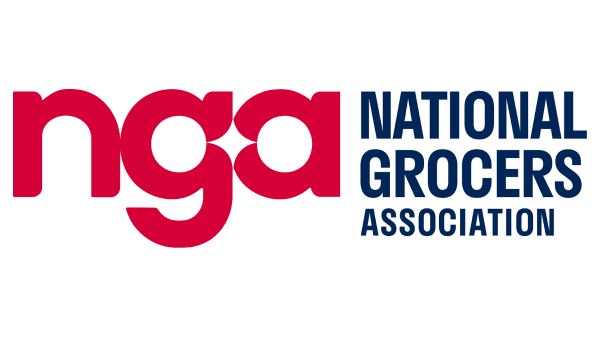FOR IMMEDIATE RELEASE June 15, 2021 Washington, D.C. – Independent community grocers play a key role in the nation’s economy with positive impacts across the country via jobs, wages and taxes, according to the latest economic impact study from the National Grocers Association BB #:163424, the trade association representing the independent supermarket industry.
Independent community grocers are responsible for more than 1.1 million jobs (up from 944,200 in the previous study) earning wages approaching $39 billion. Wholesalers serving independent grocers provide more than 44,000 jobs that earn wages of nearly $3.3 billion.
Additionally, the independent grocery industry is directly or indirectly responsible for nearly 860,000 jobs across other industries including agriculture, manufacturing and transportation. Further, independent grocers generate federal, state and local tax revenues surpassing $36 billion.
“Not only are independent community grocers at the heart of the community, they are also at the heart of the U.S. economy, responsible for more than 1.1 American million jobs across thousands of communities,” said NGA President and CEO Greg Ferrara.
“The continued strength and growth of the independent supermarket industry shows consumers are supporting local, community grocers who continue to innovate and bring value to the communities they serve.”
Independent grocery sales account for 33% of total grocery sales, up from 25% a decade ago. Independent grocers represent 1.2% of the 2020 U.S. gross domestic product of $20.93 trillion, with a total output exceeding $255 billion.
Sales increased to a little over $253.6 billion, from $131 billion, in the independent sector since 2012, the data year for the last study. During this same period, overall U.S. grocery store sales rose from $524 billion to $772 billion. 1
“Through strategic investment and planning, independent community grocers found themselves well positioned to meet the intense demand placed on them by consumers during the pandemic, and have proved themselves to be indispensable partners in their communities and local economies,” Ferrara said.
“Despite this growth over the past decade, independents appear to be losing a foothold in rural and inner-city low-income areas. NGA is working to reverse this trend through a comprehensive antitrust advocacy approach that would rein in growing power-buyer influence and encourage grocery investment in disadvantaged communities.”
E-commerce also has driven sales as independent grocers have invested more in their online shopping platforms, which gave independents an edge during the pandemic. Online grocery sales grew 54% in 2020 to nearly $96 billion, driving it to a 12% share of total U.S. e-commerce sales and 7.4% of all grocery sales. 2
Independent grocers continue to expand their e-commerce capabilities, particularly to accept Supplemental Nutrition Assistance Program (SNAP) benefits for online purchases, enhancing their ability to help the food insecure. In 2020, SNAP, which helps low-income families afford more healthy foods, was responsible for nearly 200,000 U.S. grocery industry jobs earning wages totaling more than $6.7 billion.
Additionally, SNAP drove job growth of nearly 45,000 jobs in supporting industries, including agriculture, manufacturing, transportation and municipal services. SNAP also was responsible for 2020 federal tax receipts in excess of $1 billion, as well as state and local taxes topping $975 million.
All of this growth came during a period largely marked by food inflation. Between 2012 and 2020, food experienced an average inflation rate of 1.69% per year. In other words, food costing $1 in the year 2012 would cost $1.14 in 2020 for an equivalent purchase. 3
“This study is further proof that independent community grocers are crucial to feeding the nation’s pocketbooks as well as its bellies,” Ferrara said.
The study was conducted for NGA by John Dunham & Associates. For more information and study methodology, visit www.grocersimpactamerica.com.
KEY TAKEAWAYS
• Independent grocers contribute more than $255 billion to the economy, or about 1.2% of the U.S. GDP.
• Independent community grocers are responsible for more than 1.1 million jobs earning wages approaching $39 billion. Wholesalers serving independent grocers provide more than 44,000 jobs that earn wages of nearly $3.3 billion.
• Independent grocers generate federal, state and local tax revenues surpassing $36 billion.
• Independent grocery sales rose from $131 billion to $253.6 billion between 2012 and 2020. During that same period, overall U.S. grocery store sales rose from $524 billion to $772 billion.
• Independent grocery sales account for 33% of total U.S. grocery sales, up from 25% a decade ago.
• Despite these gains, independent grocers lost ground in many rural and urban areas where food deserts exist due in large part to competitive disadvantages in the marketplace that favor big-box retailers and dollar stores.
• In 2020, the Supplemental Nutrition Assistance Program (SNAP) was responsible for nearly 200,000 U.S. grocery industry jobs earning wages totaling more than $6.7 billion.
1TDLinx
2Insider Intelligence, https://www.emarketer.com/content/2021-online-grocery-sales-will-surpass-100-billion
3U.S. Bureau of Labor Statistics
About NGA
NGA is the national trade association representing the retail and wholesale grocers that comprise the independent sector of the food distribution industry. An independent community grocer is a privately owned or controlled food retail company operating a variety of formats. The independent grocery sector is accountable for more than 1 percent of the nation’s overall economy and is responsible for generating more than $250 billion in sales, 1.1 million jobs, $39 billion in wages and $36 billion in taxes. NGA members include retail and wholesale grocers, state grocers associations, as well as manufacturers and service suppliers. For more information about NGA, visit www.nationalgrocers.org.
Contact:
NGA Communications Office
202-938-2594
communications@nationalgrocers.org
601 Pennsylvania Ave. NW
North Building, Suite 375
Washington, DC 20004



